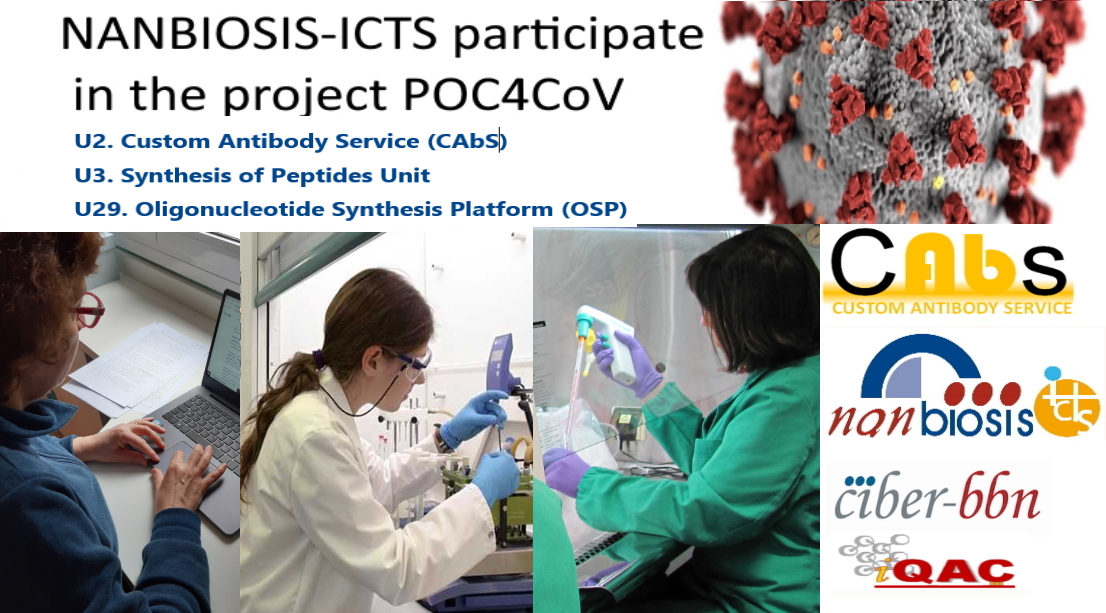
The Spanish Higher Council for Scientific Research (CSIC) will finance the project Point-of-care tests for the rapid detection of SARS-CoV-2 (POC4CoV), whose objective is to have effective diagnostic technologies for Covid-19. The Institute of Microelectronics of Barcelona (IMB-CNM-CSIC), the Institute of Advanced Chemistry of Catalonia (IQAC-CSIC) and the Institute of Materials Science of Aragon (ICMA) participate in it.
The POC4CoV project aims to develop Point-of-Care (POC) devices for the in vitro diagnosis of SARS-COV-2 infection quickly and reliably, thanks to the use of multiplexed systems and the use of particular biomolecular probes. To do this, POC technological platforms will be used in combination with specific capture biomolecules and nanobiotechnological probes (enzyme bioconjugates and biofunctional plasmonic and magnetic nanoparticles), which will allow the simultaneous detection of different biomarkers (viral RNA and antigens, IgM and IgG) related to Covid-19 disease. The biomolecular complexes will be collected at specific points on the devices where the electrochemical or optical signals will be recorded.
The developed POC platforms will undergo analytical and clinical validation in a clinical setting.
Three units of NANBIOSIS (form CIBER-BBN and IQAC-CSIC) will will take an active participation in the project.
NANBIOSIS Unit 2 Custom Antibody Service (CAbS), will produce antibodies against the Spike protein and other virus proteins, trying to maximize the recognition of those epitopes that differentiate SARS-CoV-2 from other Coronaviruses
NANBIOSIS Unit 3 Synthesis of Peptides Unit will synthesize peptidic sequences that will allow to identify towards which epitopes the immune response is directed, which will allow to develop more specific diagnostic methods.
NANBIOSIS Unit 29 Oligonucleotide Synthesis Platform (OSP) has designed probes with oligonucleotide sequences that will allow the capture of viral RNA through the formation of high affinity triplex complexes








